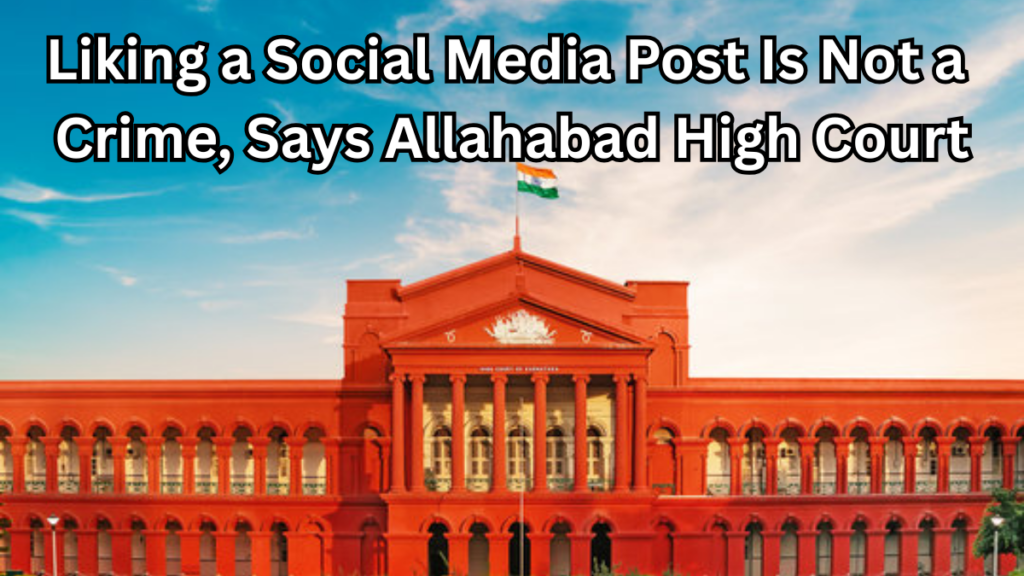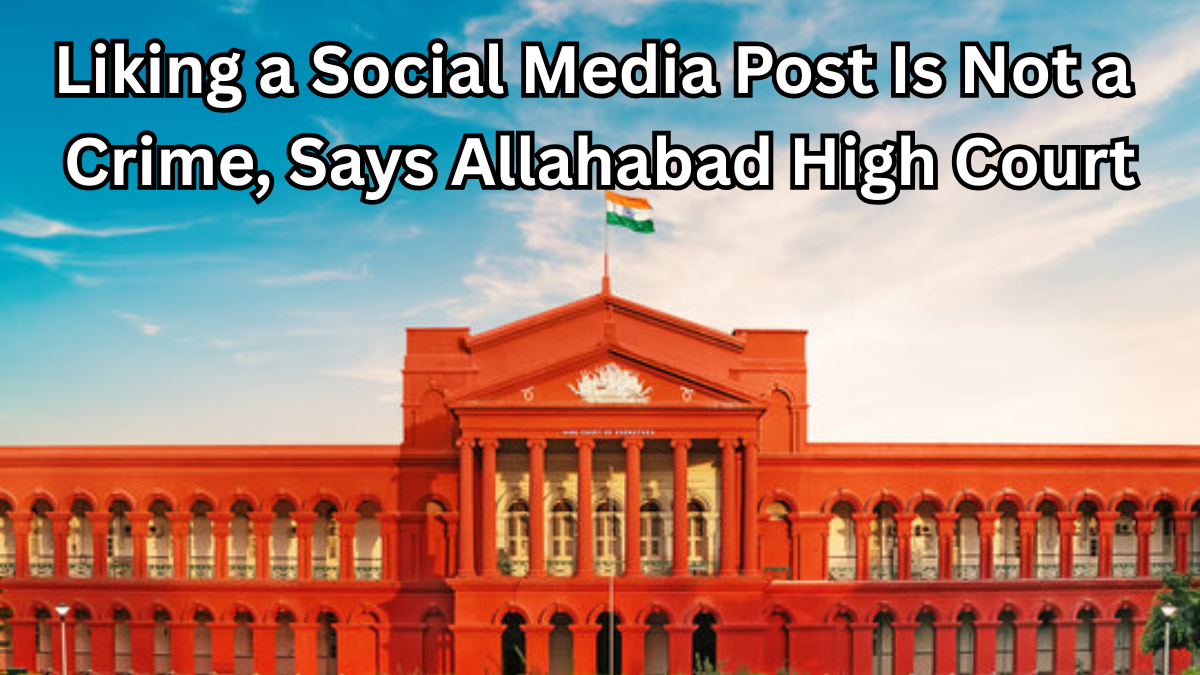In a significant judgment that brings relief to social media users, the Allahabad High Court recently clarified that merely liking a post on platforms like Facebook or WhatsApp does not amount to publishing or transmitting it under the law. This ruling comes from Justice Saurabh Srivastava while quashing a criminal case against one Imran Khan from Agra.

Background of the Case
Imran Khan faced legal action for liking a social media post shared by Chaudhari Farhan Usman. The post in question talked about a peaceful protest near the collectorate to hand over a memorandum to the President of India. Authorities claimed that the post was provocative and that it contributed to the gathering of 600–700 people without prior permission.
However, the court viewed the matter differently.
What the Court Observed
Justice Srivastava, while dismissing the charges against Khan, made some key observations:
-
Mere liking of a post does not amount to publishing or sharing.
-
No provocative content was found directly linked to Imran Khan.
-
Section 67 of the IT Act deals with obscene and sexually explicit content—not with provocative or political messages.
What Does Section 67 of the IT Act Say?
Here’s a quick look at what the law actually covers:
| Section | Content Covered | Punishable Acts |
|---|---|---|
| Section 67 | Publishing/transmitting obscene material in electronic form | Acts involving sexually explicit or lascivious content |
The court stressed that:
-
The terms like “lascivious or appeals to the prurient interest” relate specifically to sexual interest, not political dissent or protest messages.
Statements from the Hearing
-
The counsel representing Khan stated that no objectionable material was found on his Facebook profile.
-
The police alleged that he had deleted such content, though similar material was found on other platforms.
-
Ultimately, the court concluded that Khan merely liked the post and did not publish or forward any objectionable content.
Quote from the judgment:
“I do not find any material which could connect the applicant with any objectionable post, as there is no offensive post available in the Facebook and WhatsApp accounts of the applicant.”
Final Verdict
The High Court quashed the proceedings against Khan under its inherent powers (Section 482 of CrPC), stating that:
-
No criminal offence had been committed.
-
Liking a post alone does not amount to instigating a public gathering.
-
Section 67 cannot be invoked in this scenario as the post was not obscene in nature.
Frequently Asked Questions (FAQs)
1. Does liking a post on Facebook count as publishing it?
No. According to the Allahabad High Court, merely liking a post does not count as publishing or transmitting it under the Information Technology Act.
2. Can you be punished for liking a controversial post?
Not unless the act of liking directly leads to incitement or involves obscene content. Courts will look at the intent and context.
3. What does Section 67 of the IT Act actually punish?
It punishes publishing or transmitting obscene material—primarily sexually explicit content—in electronic form. It doesn’t cover political or provocative opinions unless they are obscene.
4. What legal recourse do you have if falsely accused due to social media activity?
You can file for quashing of proceedings under Section 482 of CrPC if there’s no direct evidence against you.
Click here to learn more
Sachin is a dedicated writer specializing in education, career, and recruitment topics, delivering clear and actionable insights to empower readers.
